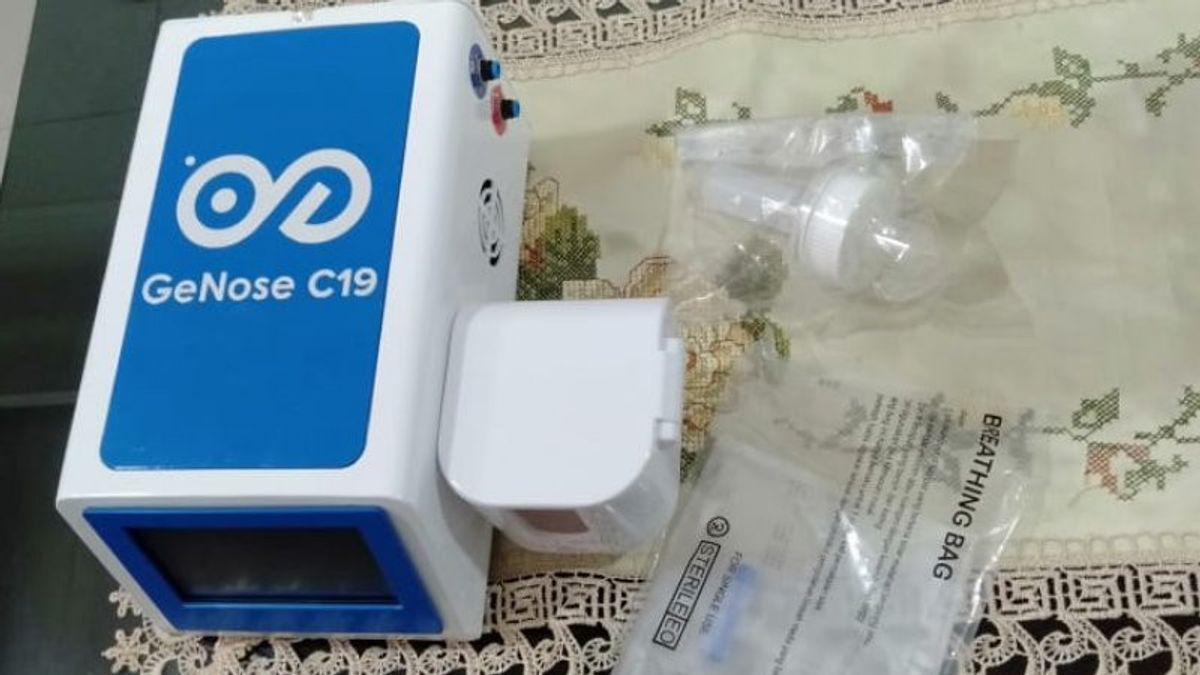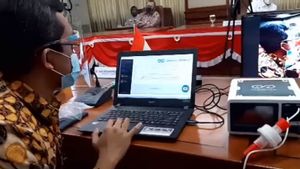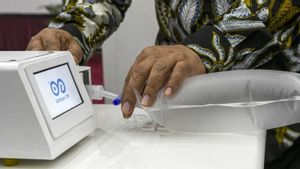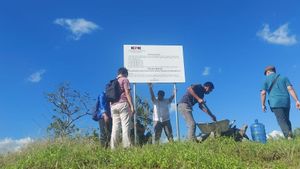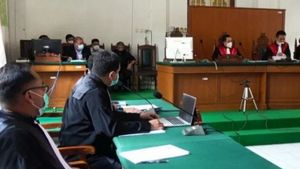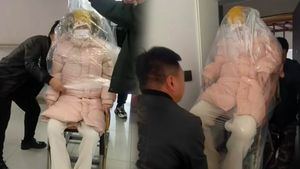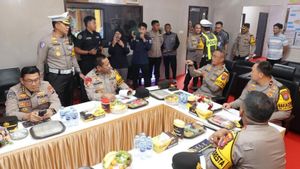JAKARTA - Director of Prevention and Control of Directly Infectious Diseases of the Ministry of Health (Kemenkes) Siti Nadia Tarmizi responded to the proposal to stop using the GeNose C19 COVID-19 test kit as a condition of travel.
Nadia said that the potential for inaccuracies in the use of GeNose from the results of the examination of travelers was still understandable.
This is because this is only done to screen for COVID-19 exposure for people who are mobile, not as a means of diagnosing COVID-19 infection.
"GeNose is currently being used as a screening tool. Of course, there are limitations to its use policy because it is not a diagnostic tool", Nadia told VOI, Wednesday, June 23.
Regarding the findings of false positives or false negatives from the use of GeNose, Nadia admitted that there was indeed a certain percentage of inaccurate potential. Likewise with other test equipment such as rapid antigen test.
"Rapid antigen is also not 100 percent. It's just an option to use the test as a travel requirement. There are rapid antigens and PCR swabs as well", said Nadia.
SEE ALSO:
For information, a number of epidemiologists have asked the government, especially the Ministry of Health and the Ministry of Transportation, to stop the use of GeNose C19 as one of the requirements for public transportation.
An epidemiologist from the University of Indonesia, Pandu Riono, said that GeNose was inappropriate as a screening tool at airports to stations. Pandu also did not recommend that GeNose be used as a COVID-19 screening tool in a number of activities.
Because, he said, there is currently no validation from external parties other than Gadjah Mada University (UGM), the maker of GeNose, which states that the tool has an accuracy of up to 90 percent of the coronavirus test.
"Avoid using the GeNose COVID-19 screening tool that is not validated on travelers, meetings, offices, hotel visitors, educational activities such as schools and colleges, sporting events, concerts, and so on", said Pandu when confirmed by VOI.
An epidemiologist from Australia's Griffith University, Dicky Budiman also admitted that from the start he did not agree if travelers used the GeNose test results as a condition for traveling.
This is because rumors circulated that there were findings of false negative and false positive results from the use of GeNose. Therefore, the accuracy of the GeNose test is doubtful.
The problem is, currently the spread of COVID-19 is mostly caused by people who travel. What Dicky is worried about is that exposure to the coronavirus could not be detected because of GeNose's inaccuracy.
"From the beginning, I did not see the placement of GeNose as a screening tool in public facilities and it tends to be dangerous, especially with the new variant that is extraordinarily effective in infecting through the air", said Dicky in a short message.
Ahmad asked the Ministry of Health to stop the GeNose distribution permit as one of the requirements for transportation travelers, from airports to stations.
"Try the government to moratorium on the use of GeNose first, review it first, use standard screening tools such as antigen and PCR. This is for public safety as well", said Ahmad.
Ahmad does not doubt UGM's claim about the accuracy of GeNose reaching 90 percent in examining the coronavirus. However, there are currently no validation results from external parties to test it.
In fact, since last February, there are three campuses that will carry out external validation of GeNose. The campuses are the University of Indonesia, Andalas University, and Unair.
"I really hope that there will be external validation results from the campus so that the objective claim is 90 percent accurate. If the results of the external validation test are the same as UGM claims, it means that the problem is not in GeNose", he said.
The English, Chinese, Japanese, Arabic, and French versions are automatically generated by the AI. So there may still be inaccuracies in translating, please always see Indonesian as our main language. (system supported by DigitalSiber.id)
